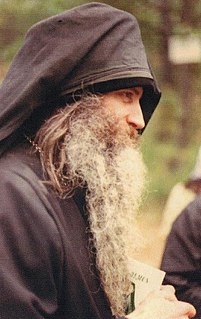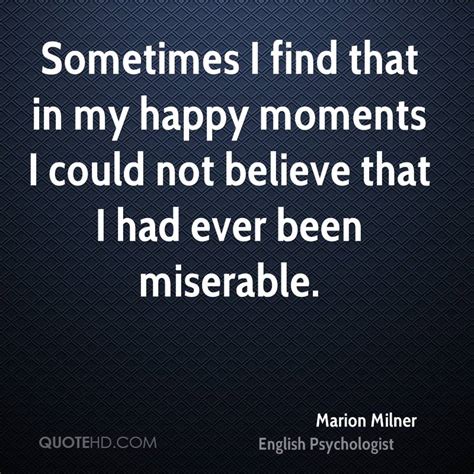A Quote by Laura Schlessinger
In this regard, pleasure is an event; happiness is a process. Pleasure is an end point; happiness is the journey. Pleasure is material; happiness is spiritual. Pleasure is self-involved; happiness is outer- and other-involved.
Related Quotes
Pleasure is not the goal of man, but knowledge. Pleasure and happiness comes to an end. It is a mistake to suppose that pleasure is the goal. The cause of all the miseries we have in the world is that men foolishly think pleasure to be the ideal to strive for. After a time man finds that it is not happiness, but knowledge, towards which he is going, and that both pleasure and pain are great teachers.
At the heart of our desires is eternal happiness without the slightest hint of misery. You could say that we are pleasure seekers; however, seeking pleasure from the objects of our five senses produces fleeting moments of pleasure whereas, pleasure of one's self, a soul, is eternal and ever-increasing pleasure.
Joy is not the same as pleasure or happiness. A wicked and evil man may have pleasure, while any ordinary mortal is capable of being happy. Pleasure generally comes from things, and always through the senses; happiness comes from humans through fellowship. Joy comes from loving God and neighbor. Pleasure is quick and violent, like a flash of lightning. Joy is steady and abiding, like a fixed star. Pleasure depends on external circumstances, such as money, food, travel, etc. Joy is independent of them, for it comes from a good conscience and love of God.
Lenten practices of giving up pleasures are good reminders that the purpose of life is not pleasure. The purpose of life is to attain to perfect life, all truth and undying ecstatic love - which is the definition of God. In pursuing that goal we find happiness. Pleasure is not the purpose of anything; pleasure is a by-product resulting from doing something that is good. One of the best ways to get happiness and pleasure out of life is to ask ourselves, 'How can I please God?' and, 'Why am I not better?' It is the pleasure-seeker who is bored, for all pleasures diminish with repetition.
Why do men learn through pain and suffering, and not through pleasure and happiness? Very simply, because pleasure and happiness accustom one to satisfaction with the things given in this world, whereas pain and suffering drive one to seek a more profound happiness beyond the limitations of this world.
There is a plain distinction to be made betwixt pleasure and happiness. For tho' there can be no happiness without pleasure--yet the converse of the proposition will not hold true.--We are so made, that from the common gratifications of our appetites, and the impressions of a thousand objects, we snatch the one, like a transient gleam, without being suffered to taste the other.
I think we all mistake certain things for happiness. I think we mistake comfort for happiness and we mistake pleasure for happiness, and entertainment for happiness, when really these are just things we use as proxies for our happiness. We use them to cheer us up or try and achieve brief happiness, when really happiness is something much more profound and long lasting and exists within us.





































